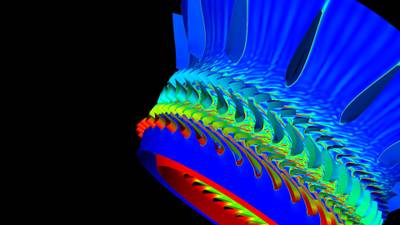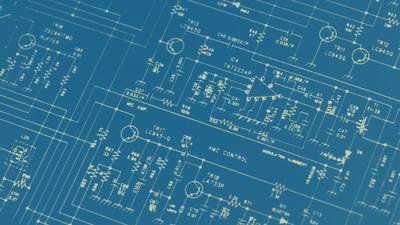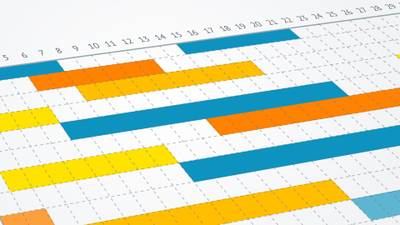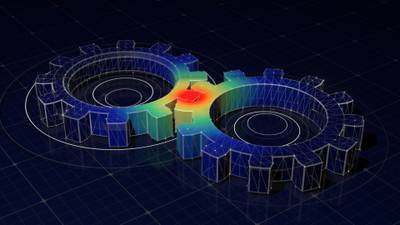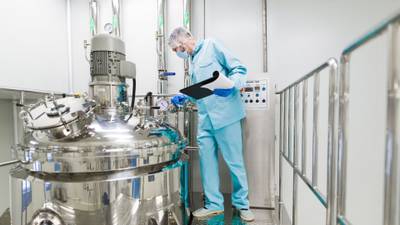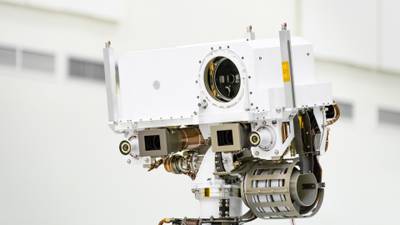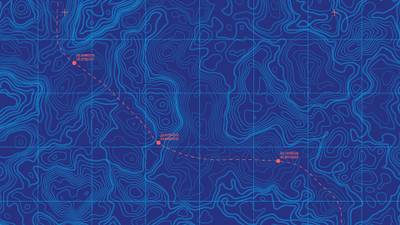Join a rehabilitation engineering course you can study online.
Our bodies are shaped by the forces that act on them, and to understand movement, we need to understand the nature of that interaction.
In this flexible online short course, you’ll develop your understanding of:
- the fundamental biomechanical principles of human movement
- state-of-the-art methods of assessment and analysis of human movement
- the implications of certain diseases and injuries on movement
- technologies that can help improve function in people with movement disorders.
With expert guidance, you’ll learn to analyse and interpret human movement data, and relate structural and performance changes in the body to functional impairments.
By the end of this course, you’ll be able to assess and critically evaluate new technologies in terms of their potential for rehabilitation.
Who can join this online rehabilitation engineering course?
People with an interest in human movement and biomechanics can join this course.
Usually, you’d have a background in science or engineering, or experience working in a human movement setting, and basic mathematical competence.

Build credits towards a Masters degree
This online course is part of:
You can use the credits you earn with this short course towards this MSc qualification.
What you’ll study
In this course, you’ll cover a broad range of topics related to rehabilitation engineering and musculoskeletal biomechanics.
The following topics are indicative of what you’ll study during the course:
- Biomechanics of the human musculoskeletal system
- The basis of human movement including forces, moments, and kinematics
- The impacts of injury or disease on human movement and function
- The goals of orthopaedics and rehabilitation
- Advanced assessment and analysis methods for human movement, including motion analysis, dynamometry, electromyography
- Assistive technologies for rehabilitation, including currently available devices and future perspectives.
By the end of this course, you’ll be able to...
-
Interpret biomechanical data, such as kinematics, kinetics and EMG, to assess human movement.
-
Perform biomechanical analyses to quantify human movement in terms of kinematics and kinetics, using specialist software tools.
-
Assess the benefits and limitations of a range of measurement methods for the assessment of movement disorders.
-
Discuss the impact of disease and injury on human movement.
-
Evaluate the potential of selected rehabilitation technologies for restoring function in people with movement disorders.
Choose the University of Aberdeen for online rehabilitation engineering courses

Earn as you learn
We fit around full-time work, so you can build qualifications while you keep earning a salary.

You’re in expert hands
We’ve been training world-class engineers for over 100 years and delivering online learning for decades.

20% alumni discount
University of Aberdeen alumni get 20% off fees for this online course.
How you’ll study
Online learning
This distance-learning rehabilitation engineering course is delivered flexibly, 100% online.
You can learn with us anywhere in the world, no student visa required, and manage your hours to suit you.
Your teaching
This course is taught at Masters level.
Teaching is delivered through MyAberdeen, our online Virtual Learning Environment (VLE). It holds all the materials, tools and support you’ll need in your studies. Take a look around MyAberdeen.
You can access your learning materials on computer, smartphone and laptop, 24 hours a day. You’ll find a range of resources available, including:
- videos
- pre-recorded video lectures
- live online tutorials
- slide shows
- reading materials
- the online resources of our award-winning Sir Duncan Rice Library.
Live online tutorials
Each week, there’ll be a one-hour online session with your tutor where you can discuss ideas or issues, and raise any questions you have about the course or its content. These live sessions will be optional and will not be recorded.
Your tutors
This course is delivered by our School of Engineering.
You’ll learn from research-active academics, with occasional contributions from clinical engineers or other clinicians.
Your course content has been shaped through discussion with clinical engineers and an Industrial Advisory Board of professionals from relevant sectors.
This course is assessed online.
You’ll be assessed throughout your studies via:
- a group poster presentation (worth 30% of your final course grade), and
- an individual report (70%).
This course totals approximately 150 hours of study and assessment time. That’s around 10 – 15 hours per week.
This is an indicative guide to the time required for a typical student at this level to achieve the learning outcomes. This includes time for independent study, as well as teaching and assessments.
You can largely set your own study hours each week to cover the materials. MyAberdeen is available 24/7, so you can log in and study when it suits you.
Live online tutorials
This course features weekly online tutorial sessions where you can come to discuss issues, ask questions, or get help with worksheets. Each tutorial is live and scheduled to last for around one hour.
Tutorial dates and times will be organised at the start of the course. Your course coordinator will consider everyone’s circumstances and time zones before setting up live tutorials times that best suit the class.
Attendance is encouraged, but optional, and sessions will not be recorded.
Activities at fixed times
There will be some activities scheduled at a fixed time, such as online meetings with your tutor, scheduled presentations, or assessments with deadlines. But otherwise, you can access and work through the course at your convenience.
Our first-class support structure will ensure that you aren’t alone in your studies. You’ll have contact with your tutors via MyAberdeen and email. You can use social media and discussion boards to chat with your fellow students too.
We provide a wide range of services to support you in your studies and beyond:
- Careers and Employability Service
- Disability support
- IT support
- Library support
- Student Support Service – help with finances, wellbeing and non-academic issues
- Student Learning Service – study support, with advice sessions available
- Aberdeen University Students’ Association (AUSA) – run by students for students
- Toolkit – clever apps and free training that can make your study life easier
Wherever you are in the world, you’ll feel part of our very special Aberdeen learning community.
Your course coordinator

Professor Ed Chadwick
Ed is a Biomedical Engineer with research interests in biomechanics, modelling and simulation of human movement, and rehabilitation engineering.
Ed’s research applies engineering principles to facilitate restoration of function in people with activity-limiting movement disorders of the upper limb arising from neuromuscular conditions, orthopaedic problems and limb difference.
View Ed’s profileWhere this will take you
Towards a Masters
You’ll earn 15 credits at Masters level (SCQF Level 11) with this course. You can use these credits towards:

Masters in Industrial Robotics
Build your skills in engineering and AI, and learn to develop robotics technologies for diverse industry sectors.
View MSc Industrial RoboticsCareers
This course is designed to help you progress within or towards careers in:
- rehabilitation engineering
- clinical engineering
- medical device design, or
- rehabilitation research.
Continuing Professional Development (CPD)
Your employer or professional institute may recognise this course for CPD hours. Talk to your employer or institute to find out more.

Free career support
Access our free careers service while you study.
- 1:1 appointments
- CV checks
- Interview prep
- Job opportunities
Entry requirements
Entry requirements
We welcome students from all over the world.
This course has no formal entry requirements. You do not need to provide proof of your qualifications.
But you do need to check the entry guidance above to understand the level of teaching delivered, to decide if this course is right for you.
If you do not have qualifications from the UK, check the equivalent teaching level for your country.
Visa requirements
You do not need a student visa to study online with us.
English language requirements
Teaching is delivered in English.
You do not have to provide proof of your English language skills to join this course. But we want to make sure that you can use English well enough to study successfully.
Recommended level of English
For this course, we recommend the following level of English language proficiency.
These are our Postgraduate Standard requirements, and these are minimum scores.
IELTS Academic, IELTS UKVI Academic, or IELTS Online (not IELTS Indicator or IELTS General Training)
- 6.5 overall
- 5.5 for listening, reading and speaking
- 6.0 for writing
TOEFL iBT or TOEFL iBT Home Edition
- 90 overall
- 17 for listening
- 18 for reading
- 20 for speaking
- 21 for writing
- TOEFL DI code is 0818
Cambridge English: B2 First, C1 Advanced, or C2 Proficiency
- 176 overall
- 162 for listening, reading and speaking
- 169 for writing
LanguageCert Academic / LanguageCert Academic SELT
- 70 overall
- 60 for listening, reading and speaking
- 65 for writing
Oxford ELLT Digital – English Language Level Test Online
- 7.0 overall
- 5.0 for listening, reading and speaking
- 6.0 for writing
PTE Academic (online test not accepted)
- 62 overall
- 59 for listening, reading, speaking and writing
Skills for English: SELT
- B2 pass with merit
Duolingo – tests taken from 1 July 2024 onward
- 120 overall
- 95 for listening, reading and speaking
- 105 for writing
University of Aberdeen English Pre-sessional Programme (PSE)
- Pass
- Valid for one year. Refresher can be offered if out of date
Pre-sessional academic English preparation programmes undertaken at other UK universities
- Pass at an equivalent of 6.5 (C1)
- B2 in all four skills
- Certification must be within one year prior to the start of your course
For full information about language requirements, see our English Language Requirements page.
You will need access to:
A computer (PC, laptop or Mac) with an up-to-date operating system
Most teaching materials are smartphone- and tablet-friendly. But we recommend a proper laptop or desktop for completing assignments comfortably.
Reliable internet access
We recommend:
- a wired connection
- a minimum download speed of 2 Mbps so you can take part fully in live sessions.
Speakers or headphones
- We recommend a headset with built-in microphone and earphones if you’re likely to study in an environment with background noise.
- A webcam is optional, but you may like to use one for some interactive sessions.
Software
We’ll give you access to Office365 applications. This means you can use online versions of Microsoft Word, Excel, and PowerPoint and install these programs on up to five personal devices.
We’ll also give you access to, and training in, a range of specialist simulation software. You do not need any previous experience with this software. You’ll learn to use:
- MATLAB – used by engineers and scientists to analyse data, develop algorithms and create models
- MATLAB Simulink – a block diagram environment for model-based design.
See our detailed IT requirements for more information.
When you study with us, you can expect a first-class support structure so that you’re never alone in your studies.
But learning online does mean you have to motivate yourself and manage your own time.
Your most important commitment will be time – the time to work through, reflect on and understand your teaching materials.
Before you start a course that involves a high degree of independent study, we recommend looking at the time you will be able to devote to your studies each week:
- Be realistic
- Create a weekly schedule as a guide
If you have any questions about studying online, get in touch with our friendly team. We’re here to help.
Fee payment
Your course fee needs to be paid in full before you start your course.
We accept payment via Visa Debit, Visa Credit and Mastercard.
Ways to save
You may be able to get help funding this course via:
- discounts – if any discounts are available for this course, they’ll appear in the section below
- employer sponsorship – we accept full and partial fee payments from sponsors.
Find out more about funding options.
Student card
All our students are entitled to a University of Aberdeen student card. This gives you access to a range of student discounts around the city and online.
Learning resources
Access to all the books and resources you need are included in your tuition fee. They’ll be made available to you online and you do not have to buy your own copies.
Printing
You may wish to set aside a small budget for printing, depending on how you like to work.
This course has no formal entry requirements. You decide if it’s suitable for you.
The course is delivered at Masters level. At this level, you’d usually have at least:
- a 2:2 UK honours degree (or equivalent) in engineering or science (physical, biomedical or life), or
- relevant experience that supports this level of training;
- Mathematics competence to Higher or A-level standard or equivalent (some familiarity with algebra, trigonometry, vectors, matrices).










